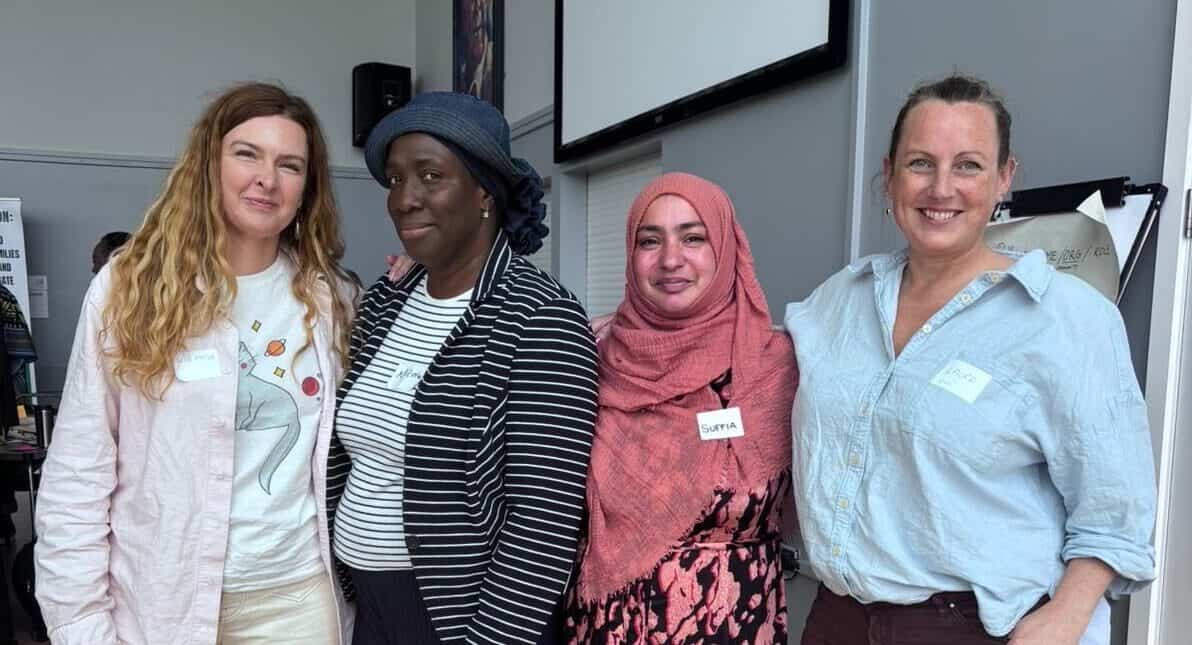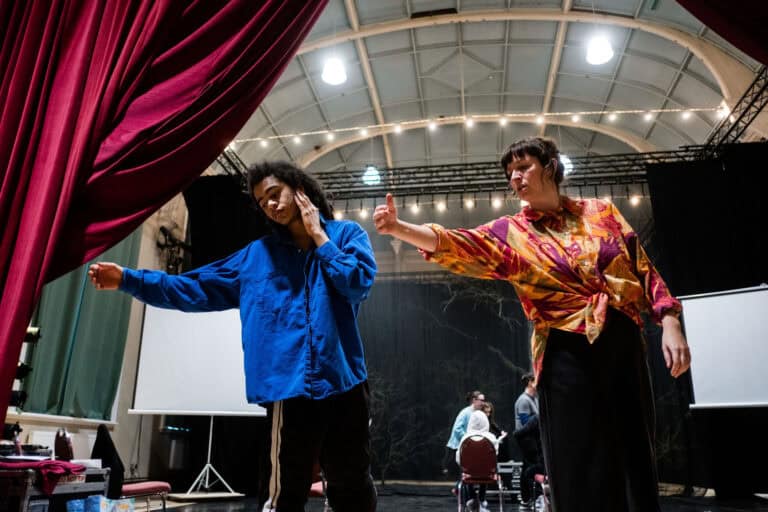So many people turn to wellbeing practitioners—whether through therapeutic practices, movement classes, circles, or creative outlets—when they are carrying vulnerability or trauma. All too often, these activities, venues, and services are marketed as “safe spaces.” As a society, we tend to trust this messaging. There’s an assumption that wellbeing practitioners are automatically qualified and equipped to work with vulnerable people. Unlike in other sectors, that trust is often implicit—granted without the need to be evidenced, earned, or maintained over time.
The uncomfortable reality is that the wellbeing sector is almost entirely unregulated. Most practitioners are self-employed, without the protections of employment law or the accountability of a governing body. This creates risks on multiple levels. Practitioners themselves can be left vulnerable, with no formal channels of protection or redress if something goes wrong. Communities are also exposed—if a practitioner, or one of their peers, causes harm, where can people turn?
At the Oxford Wellbeing Co-op, we are still in the early stages of building our governance and policy frameworks. Yet between our four co-directors, there is already a deep, lived understanding of what harm can look like in this sector. We know this not only as practitioners and facilitators, but also as participants, clients, and students who have experienced it first-hand.
At these early stages, we are learning how vital it is to take time and do this properly. The act of collaboration itself is part of the work. Each of us brings unique perspectives — professional training in areas like safeguarding, HR, and disclosure, alongside lived experience of harm within the sector. Pooling this knowledge allows us to grow a shared understanding of risk management, safeguarding, and care.
And, while creating frameworks and policies can feel like heavy administrative labour that takes us away from the frontline work we are so passionate about, we know that these tools are necessary to help us hold ourselves accountable, build trust with our communities, and to set a higher standard than what currently exists in the sector.
What is the Oxford Wellbeing Co-op?
We are a consortium cooperative of wellbeing practitioners, teachers, and therapists, united by a shared commitment to supporting our local community, rooted in values of diversity, accessibility, and sustainability. Our own lived experiences shape the way we show up, reminding us of the importance of care, inclusion, and change. And it’s this shared commitment to breaking cycles of harm that encouraged us to keep going.
One co-director shared:
“I was stalked by a client—bombarded with sexualised messages and calls, some in the middle of the night, some hinting I was being followed. It was terrifying, and I kept it to myself for a long time because I felt ashamed and unprepared. None of my training had ever addressed this possibility. Eventually, I withdrew—removing my phone number, looking over my shoulder on the way home, leaving social media for a while. It left me deeply aware of how exposed and unsupported we are when working alone.”
Another described the culture of silence in some wellness spaces:
“I personally experienced sexual abuse and harassment in a prominent yoga studio. The culture was coercive, and reporting was not encouraged. It severely damaged my relationship to my practice and left me traumatised and lacking in trust.”
We know these stories are not isolated. As one director reflected:
“I’ve seen people with a lot of influence in the sector use that trust in damaging ways. Because there are no checks and balances, harm can go on for years without being addressed.”
The first iteration of the Co-op was a pop-up in 2018, of around twenty practitioners offering a diverse range of wellbeing modalities in a park over two weeks. It was intense, beautiful, and gave us a glimpse of what this could become—a truly accessible and diverse offering shaped in response to the local community. Then Covid hit, and everything went on hold. The wellbeing sector suffered enormously, especially touch-based therapies such as massage and acupuncture.
During that time, I co-founded the Yoga Teachers’ Union—the first of its kind in the UK. My involvement there, alongside another co-director’s, revealed just how urgent these conversations are. When the union launched, the floodgates opened: story after story of harm, harassment, and exploitation surfaced. But with yoga teachers excluded from worker status, and without the protections of employment law, our ability to act was severely limited.
The Co-op feels different. Like the union, it is a collective—but instead of putting pressure on others to make changes, here we are co-creating the changes ourselves. We are designing the structures we need, and modelling the kind of accountability and care that could raise standards across the sector.
What are we doing to shift practice internally as a cooperative?
Our first port of call is creating space for honest conversations. Sometimes that includes sharing experiences of harm we’ve witnessed or endured; other times it means confronting moments where we may have caused harm ourselves. Building trust between us has allowed for these difficult but nurturing conversations, where we can disagree, sit with tension, and keep learning from one another. By coming together as practitioners to form a co-operative, we recognise both the responsibility we carry and the opportunity we have: to challenge the culture of silence, to be innovative, and to create accountability and support structures that do not currently exist.
We are also seeking outside support and have started working with an ethics and integrity specialist to run workshops on frameworks, risk matrices, and approaches like the Transformational Power framework. These will help us build practical tools while keeping our values at the centre.
Some of the key policies we’ve identified so far include:
- Safeguarding. Because some of our activities involve children, young people, and vulnerable adults, safeguarding is non-negotiable—even if it must be practiced critically, with awareness of the ways involving authorities can compound or create harm for those already facing state violence. We know that we must ensure practitioners have enhanced DBS checks, access to safeguarding training, and clear procedures for disclosures or concerns. We are committed to learning from established best practice, but also adapting it to reflect the realities of our work—whether that’s running classes in community settings, offering bodywork, or supporting asylum seekers and refugees who may face additional vulnerabilities, both in our spaces and from the state authorities often responsible for safeguarding.
- Code of conduct. Boundaries in the wellbeing sector are often blurred. In psychotherapy, for example, relationships between practitioners and clients are strictly prohibited, while in yoga they are often overlooked or even normalised. We are committed to setting clear, non-negotiable boundaries, with consequences if they are crossed.
- Whistleblowing policy. Independent workers are not protected by whistleblowing laws, but as a collective, we can fill this gap. We are developing a policy with confidential reporting mechanisms, ensuring members have safe channels to raise concerns.
- Complaints and reporting mechanisms. Creating pathways that are transparent, accessible, and taken seriously—both for practitioners and for the communities we serve.
Resourcing this work is not easy. As a start-up collective, we are all volunteering our time, balancing precarity and other commitments. It takes vigilance—and a fair amount of stubbornness—to keep carving out time in our weekly and bi-weekly meetings to ask hard questions and address them together. But this persistence is part of our commitment: to weave safety into the fabric of how we operate.
Ultimately, safety is not the job of a single safeguarding officer or director. It is a collective responsibility that will be continuously evolving. It means holding ourselves accountable, even when it is uncomfortable. It means being willing to pause delivery in order to get the framework right. And it means accepting that harm will sometimes happen—the real measure is how we respond when it does.
I’ve lost count of how many venue owners and managers have dismissed the need for policies or safeguarding protocols because they are “not legally required,” or because they “don’t have the resources.” We are proving that this is not an excuse. Safety and dignity in wellbeing practice is not optional. It is a collective responsibility—and we all have a duty of care.
Laura, Jameelah, Suffia & Miranda
Co-directors, Oxford Wellbeing Co-operative




Comment on our forum: community.radhr.org